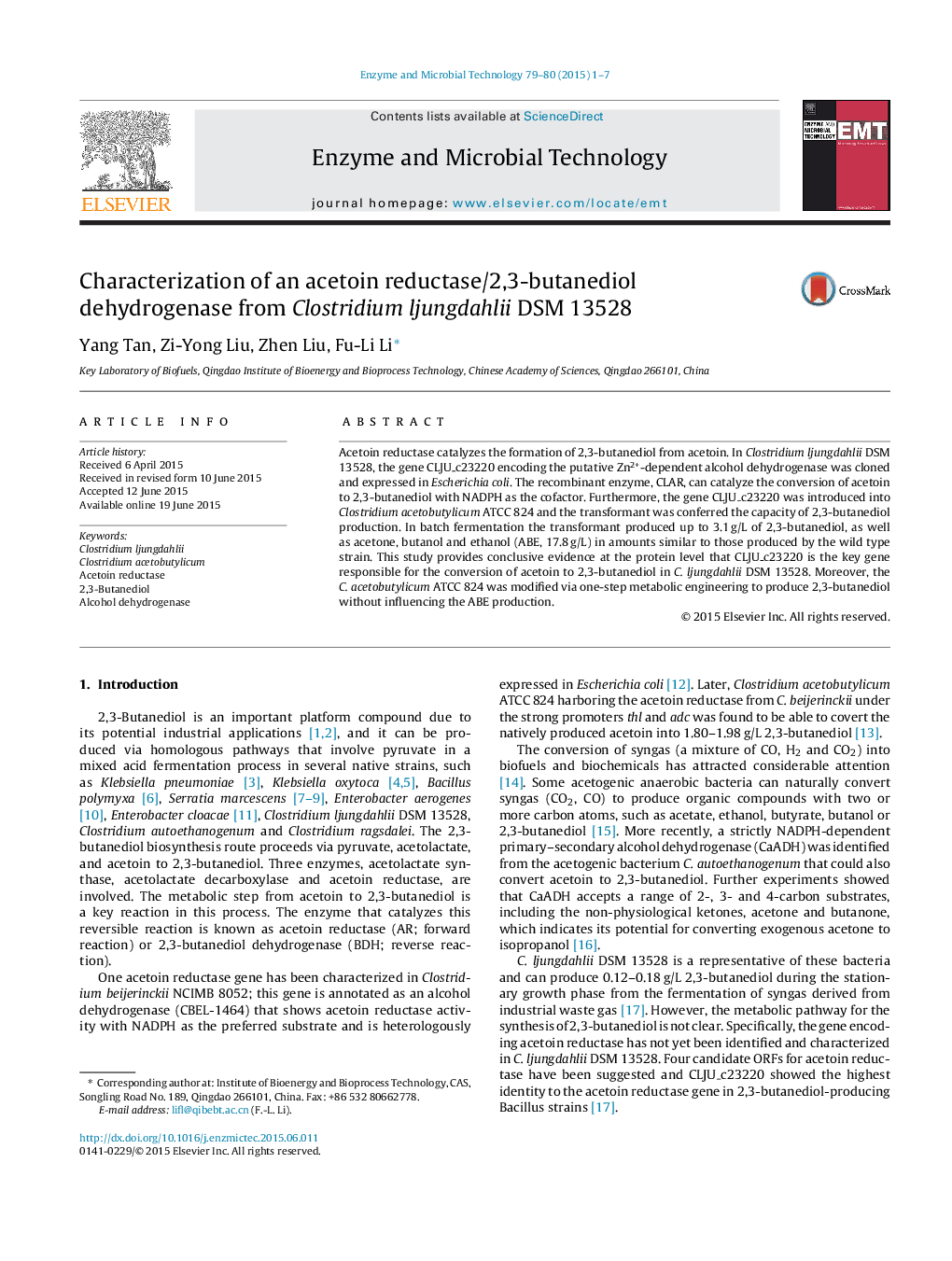| Article ID | Journal | Published Year | Pages | File Type |
|---|---|---|---|---|
| 16853 | Enzyme and Microbial Technology | 2015 | 7 Pages |
•Acetoin reductase from Clostridium ljungdahlii was verified in vitro.•Clostridium acetobutylicum harboring acetoin reductase produces 2,3-butanediol.•This study suggested gene target to improve the production of 2,3-butanediol.
Acetoin reductase catalyzes the formation of 2,3-butanediol from acetoin. In Clostridium ljungdahlii DSM 13528, the gene CLJU_c23220 encoding the putative Zn2+-dependent alcohol dehydrogenase was cloned and expressed in Escherichia coli. The recombinant enzyme, CLAR, can catalyze the conversion of acetoin to 2,3-butanediol with NADPH as the cofactor. Furthermore, the gene CLJU_c23220 was introduced into Clostridium acetobutylicum ATCC 824 and the transformant was conferred the capacity of 2,3-butanediol production. In batch fermentation the transformant produced up to 3.1 g/L of 2,3-butanediol, as well as acetone, butanol and ethanol (ABE, 17.8 g/L) in amounts similar to those produced by the wild type strain. This study provides conclusive evidence at the protein level that CLJU_c23220 is the key gene responsible for the conversion of acetoin to 2,3-butanediol in C. ljungdahlii DSM 13528. Moreover, the C. acetobutylicum ATCC 824 was modified via one-step metabolic engineering to produce 2,3-butanediol without influencing the ABE production.
